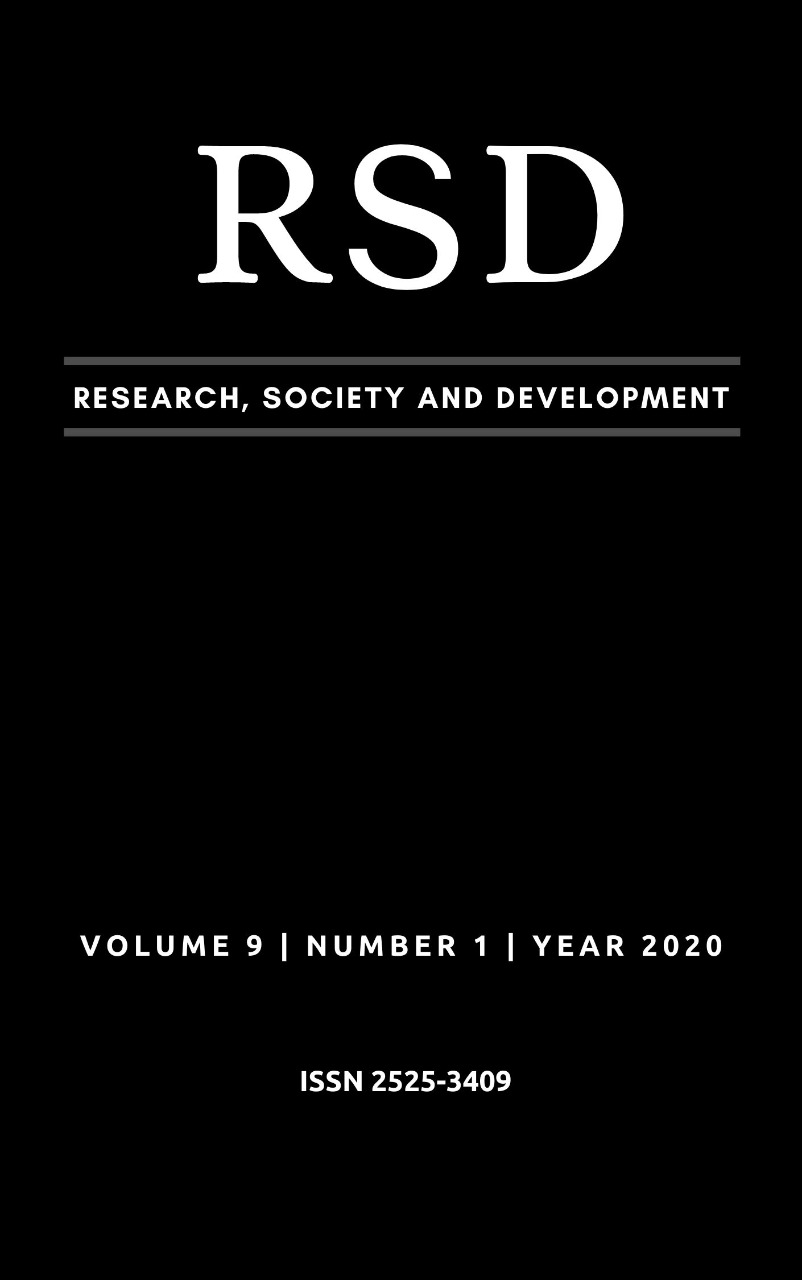O que os alunos do ensino médio lêem hoje? Caso da Escola Villa Santa María da comuna de El Bosque, Santiago, Chile
DOI:
https://doi.org/10.33448/rsd-v9i1.1810Palavras-chave:
Tópicos de leitura, experiência de leitura, nível criativoResumo
O objetivo da pesquisa foi determinar os tópicos de leitura preferidos pelos alunos do segundo ano do ensino médio de uma escola particular subsidiada na comunidade de El Bosque, no Chile. A abordagem da pesquisa foi quantitativa descritiva. A amostra correspondeu a 118 estudantes no segundo ano do estabelecimento de ensino. A técnica de coleta de dados foi a pesquisa e o instrumento de coleta foi o questionário. De acordo com os resultados, os professores promovem a atitude participativa e crítica em relação a seus alunos com uma metodologia que inclui compartilhar leituras e favorecer experiências de leitura, mas sem atingir o nível criativo. Os alunos gostam de ler muito pouco e os tópicos que preferem são esportes, livros sobre artistas favoritos, histórias de ação com jovens protagonistas e quadrinhos, no entanto, os professores não procuram espaços adequados para entrar em contato com esses textos, fazendo com que não leiam sobre outros tópicos e não participem da aula.
Referências
Cabrera, M. y Caruman, S. (2018). Relación entre tipo de texto y comprensión lectora en una
prueba estandarizada chilena. Revista Perfiles Educativos, 40(161), 107 – 127. Recuperado de http://www.scielo.org.mx/scielo.php?pid=S0185-26982018000300107&script=sci_arttext
Chuc, L. (2015). Lectura comprensiva y su influencia en el razonamiento crítico (Tesis de
Pregrado). Universidad Rafael Landívar, México. Recuperado de http://recursosbiblio.url.edu.gt/tesiseortiz/2015/05/09/Chuc-Lucia.pdf
Del Pino, M., Del Pino, A. y Pincheira, D. (2016). La lectura desde el enfoque del Ministerio
de Educación y el enfoque dialógico de la pedagogía “Enlazando Mundos”. Revista Electrónica Educare, 20(3). Recuperado de http://dx.doi.org/10.15359/ree.20-3.6
García, A. (2016). Prácticas lectoras en espacios de afinidad: formas participativas en la
cultura digital. Ocnos, 15 (1), 42-51. Recuperado de http://dx.doi.org/10.18239/ocnos_2016.15.1.979
Granado, C. y Puig, M. (2014). ¿Qué leen los futuros maestros y maestras? Un estudio del
docente como sujeto lector a través de los títulos de libros que evocan. Revista Ocnos, 11, 93 - 112. Recuperado de http://www.revista.uclm.es/index.php/ocnos/article/view/441
Méndez, S. (2006). Comprensión lectora y textos literarios: una propuesta psicopedagógica.
Revista Educación, 30(1), 141-155. Recuperado de https://revistas.ucr.ac.cr/index.php/educacion/article/view/1800
Mineduc, (2005). Crear el hábito de leer. Revista España. Editorial Narcea, Madrid.
Mora, F. y Villanueva, J. (2019). La motivación hacia la lectura de textos literarios. Revista
Cedotic, 4(1), 95-114. Recuperado de http://investigaciones.uniatlantico.edu.co/revistas/index.php/CEDOTIC/article/view/2275
Munita, F. (2016). Prácticas didácticas, creencias y hábitos lectores del profesor en una
escuela exitosa en la promoción lectora. Revista Ocnos, 15 (2): 77-97. Recuperado de http://dx.doi.org/10.18239/ocnos_2016.15.2.1140
Munita, F. (2017). La didáctica de la literatura: hacia la consolidación del campo. Revista
Educacao e Pesquisa, 43(2), 379-392. Recuperado de http://dx.doi.org/10.1590/s1517-9702201612151751
Orellana, P. y Baldwin, P. (2016). Motivación y desempeño lector en niñas y niños chilenos:
un estudio exploratorio. Revista Educationis Momentum, 2(1), 7-28. Recuperado
Rivas, L. (2015). Metodología para el desarrollo de la comprensión lectora en el proceso
enseñanza-aprendizaje. Revista Científica Dominio de las Ciencias, 1(1), 47-61. Recuperado de http://dominiodelasciencias.com/ojs/index.php/es/article/view/41/34
Downloads
Publicado
Edição
Seção
Licença
Autores que publicam nesta revista concordam com os seguintes termos:
1) Autores mantém os direitos autorais e concedem à revista o direito de primeira publicação, com o trabalho simultaneamente licenciado sob a Licença Creative Commons Attribution que permite o compartilhamento do trabalho com reconhecimento da autoria e publicação inicial nesta revista.
2) Autores têm autorização para assumir contratos adicionais separadamente, para distribuição não-exclusiva da versão do trabalho publicada nesta revista (ex.: publicar em repositório institucional ou como capítulo de livro), com reconhecimento de autoria e publicação inicial nesta revista.
3) Autores têm permissão e são estimulados a publicar e distribuir seu trabalho online (ex.: em repositórios institucionais ou na sua página pessoal) a qualquer ponto antes ou durante o processo editorial, já que isso pode gerar alterações produtivas, bem como aumentar o impacto e a citação do trabalho publicado.


